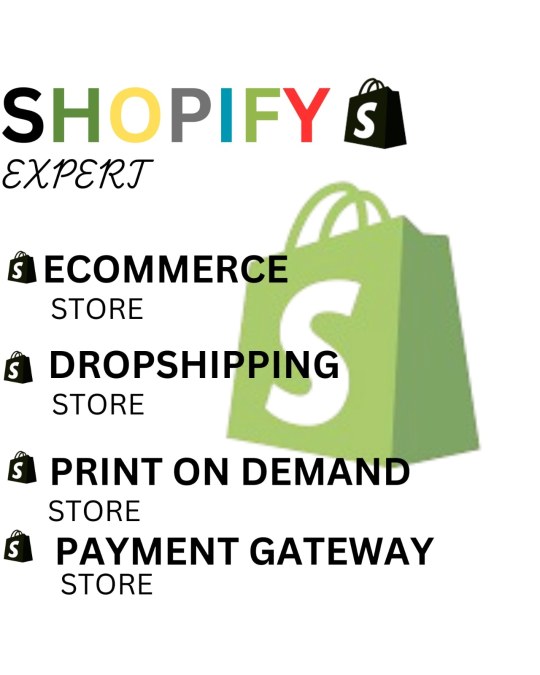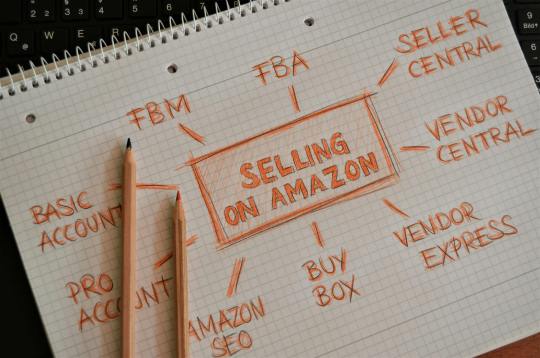#Shopify Ecommerce seo
Explore tagged Tumblr posts
Text

We are your one-stop solution to assist businesses with Shopify ecommerce SEO. Allow us to create an organized online store, optimize for mobile and search.
Visit us at - https://roadtotop5.com/services/affordable-ecommerce-seo/
0 notes
Text
What Are The Different Tools Used For SEO For Shopify Websites
Shopify for SEO has offered unmatched success to e-commerce stores. E-commerce stores have been using optimized Shopify services to attract more customers. But also ensure that the customers will come across the targeted products amidst the vast collection. So, let’s move forward and get an idea of the SEO for Shopify websites and the tools they use to excel well in this competitive field.

Mastering The Keyword As The Base Of The Foundation
The SEO for Shopify websites starts its work by using tools that ease the process of keyword research. The keyword research process mainly focus on targeting specific industries and products. They recognise the keywords that can easily integrate into the meta tags and descriptions of product lines. Also, which are performing exceptionally well on the keyword list, now this criteria is must to escalate the visibility on the search engine.

Optimizing The Product Pages To Enhance SEO Work
Seo for Shopify websites developer optimizes the images, descriptions, or titles to create compelling web pages. They use exclusive descriptions for products and make sure that each page is displayed rightfully on the search engine platform. As a result, potential customers can find that easily.
Introducing The Shopify Apps To Optimise The Effort
The SEO for Shopify websites experts does leverage the Shopify apps to streamline the task of optimization. From generating automated meta tags to implementing the scheme mark, all are quickly done. These apps can literally boost your e-commerce store and add an extra touch to search engine rankings.

Optimizing The Mobile On A Priority Basis For The Best
You need to understand that optimisation of mobile is a must when it comes to SEO for Shopify websites. Professional developers ensure that the e-commerce store is mobile-friendly and excels in offering a unique user experience to tablets and smartphones.
Final Say
Thus, these are some of the most essential SEO tools for Shopify website experts. So you can seriously look for Shopify SEO Services for the best outcome.
#SEO for Shopify websites#SEO Service for Shopify Stores#Shopify SEO Services#Shopify Search Engine Optimisation - SEO#Shopify SEO#SEO for Shopify#Shopify Seo Agency#Shopify Seo Expert#Gold Coast Web Design#Shopify Ecommerce seo#Shopify SEO services#Shopify SEO company#Shopify SEO ecommerce#Shopify SEO Increase sales#SEO Agency With Shopify Expertise#Shopify SEO Strategies#Shopify Plus SEO#Shopify store optimization
0 notes
Text

Struggling on how to grow your business, this is the right time to work with the right expert
#nature#explore#shopify experts#seo expert#digital marketing#tumblr fyp#marketing#usaclothing#ecommerce#enterpreneur#beauty#dropshipping
4 notes
·
View notes
Text

#60s#seo services#digital marketing#100 days of productivity#1950s#70s#3d printing#911 abc#shopify#shopifyseo#shopify ecommerce development
4 notes
·
View notes
Text

🚀 Premium Shopify Video Section – Ultimate Conversion Booster
This premium solution solves the #1 frustration with Shopify videos—autoplay that actually works on all devices while complying with browser policies.
✅ Smart Autoplay Engine
Browser-compliant autoplay (muted by default with optional sound toggle)
Loop & background playback for seamless viewing
Mobile-optimized with fail-safe fallback images
🎨 4 Designer Button Styles
Minimal Underline – Clean hover animation
Pill Button – Modern glass-morphism effect
Arrow Reveal – Dynamic hover interaction
Thin Outline – Ultra-minimalist luxury style
🎚️ Advanced Customization
9 content positions (drag-and-drop placement)
Dynamic overlay controls (gradients + opacity sliders)
Independent mobile/desktop settings
⚡ Performance Optimized
Lazy loading built-in
30% faster than standard video sections
SEO-friendly structured data
youtube
#video#add video#add video on shopify#shopify#fastest shopify theme#youtube#shopify store#woocommerce#web development#shopify ecommerce development#business#seo#advertising#ecommerce#shopify development company#shopify tips#Youtube
2 notes
·
View notes
Text

Get Premium Service from Shopify Expert
#small business#business#finance#christmas#web development#seo#dropshipping#ecommerce#halloween#shopify#womeninbusiness#local seo#localbusiness#shopify plus#shopify experts#ecommerce store#Dropshipping store#print on demand#payment gateway
5 notes
·
View notes
Text
Did you desire to makes your talent pay you?
Did you know that those thinking and ideas of you can actually pay you?
Did you know that you have an hidden talent that can earn you a lot of money?
If you wish to unlock this hidden talent, kindly text me to get things done.
#web development#furniture#shopify#web design#author#digital marketing#website#ecommerce#graphic design#seo#content
2 notes
·
View notes
Text
The Ultimate SEO Checklist for Your Shopify Store
In today’s competitive eCommerce landscape, having a visually appealing Shopify store isn’t enough. To attract potential customers, you need a solid SEO strategy. Search Engine Optimization (SEO) helps your online store rank higher in search engine results, increasing visibility and driving organic traffic. Here’s your ultimate SEO checklist for optimizing your Shopify store.
1. Keyword Research
Start with thorough keyword research. Use tools like Google Keyword Planner or SEMrush to identify keywords relevant to your products. Focus on long-tail keywords that reflect your specific offerings, as they often have less competition and higher conversion rates.
2. Optimize Product Titles and Descriptions
Once you have your keywords, incorporate them naturally into your product titles and descriptions. Ensure that your titles are clear and descriptive, and that your descriptions provide valuable information that helps customers make purchasing decisions.
3. Use Alt Text for Images
Images are crucial in eCommerce, but they also need to be optimized for SEO. Use descriptive alt text for every image, incorporating relevant keywords. This not only helps search engines understand your images but also improves accessibility for visually impaired users.
4. Create SEO-Friendly URLs
Your store’s URLs should be simple, descriptive, and include relevant keywords. For example, instead of a URL like shopify.com/product123, use shopify.com/organic-cotton-tshirt. This improves both SEO and user experience.
5. Enhance Site Speed
A fast-loading website is vital for retaining customers and improving SEO rankings. Use tools like Google PageSpeed Insights to analyze your site’s speed and make necessary improvements, such as optimizing images and minimizing JavaScript.
6. Mobile Optimization
Ensure your Shopify store is mobile-friendly. With a significant portion of online shopping done on mobile devices, a responsive design is essential for both user experience and SEO.
7. Implement Internal Linking
Internal links help search engines understand the structure of your site and keep users engaged. Link relevant products, blog posts, and categories within your store to improve navigation and SEO.
8. Utilize Schema Markup
Schema markup enhances your store’s appearance in search results. Implementing this code helps search engines understand your content better and can lead to rich snippets, improving click-through rates.
9. Monitor Analytics
Use tools like Google Analytics and Shopify Analytics to track your store’s performance. Monitor metrics like traffic sources, bounce rates, and conversion rates to identify areas for improvement.
10. Build Quality Backlinks
Lastly, focus on building quality backlinks. Reach out to influencers, bloggers, and industry-related websites to gain links back to your store. Quality backlinks improve your domain authority and help boost search rankings.
Conclusion
Optimizing your Shopify store for SEO is an ongoing process that requires dedication and strategy. By following this ultimate SEO checklist, you’ll enhance your online visibility, attract more visitors, and ultimately drive sales. Start implementing these tips today and watch your Shopify store thrive!
#SEO#Shopify#eCommerce#Digital Marketing#Website Optimization#Online Store#SEO Checklist#Search Engine Optimization#Shopify Tips#Marketing Strategy
3 notes
·
View notes
Text

Starting an e-commerce business can be an exciting venture with immense potential. However, with the opportunities come challenges and uncertainties. Before diving into the world of online retail, it’s crucial to plan carefully and set a solid foundation. Here are some essential tips to consider before launching your e-commerce business:
1. Conduct Market Research
Understanding the market is fundamental to any successful business. Start by identifying your target audience and analyzing competitors. Research trends, customer preferences, and potential gaps in the market. Tools like Google Trends, social media analytics, and industry reports can provide valuable insights. This research will help you tailor your products or services to meet market demands and differentiate yourself from competitors.
2. Define Your Business Model
E-commerce offers various business models, such as B2C (Business to Consumer), B2B (Business to Business), C2C (Consumer to Consumer), and subscription-based models. Determine which model aligns with your goals and resources. Each model has its own set of challenges and requirements, so choose one that best fits your product or service and target market.
3. Create a Solid Business Plan
A comprehensive business plan serves as a roadmap for your e-commerce venture. Outline your business goals, strategies, target audience, marketing plan, financial projections, and operational plan. This document will not only guide your efforts but also help secure funding if needed. A clear plan can keep you focused and organized as you navigate the complexities of launching and running an e-commerce business.
4. Choose the Right E-Commerce Platform
Selecting the right e-commerce platform is crucial for the success of your online store. Popular platforms like Shopify, WooCommerce, Magento, and BigCommerce each offer unique features and capabilities. Consider factors such as ease of use, scalability, customization options, payment gateways, and integration with other tools. The platform should align with your business needs and provide a user-friendly experience for both you and your customers.
5. Develop a User-Friendly Website
Your website is the face of your e-commerce business. Ensure it’s designed to be user-friendly, visually appealing, and optimized for mobile devices. A clean, intuitive layout with easy navigation will enhance the shopping experience and reduce cart abandonment rates. Focus on high-quality images, detailed product descriptions, and a seamless checkout process. Additionally, implement search engine optimization (SEO) strategies to improve your site’s visibility in search engines.
6. Implement Secure Payment Processing
Security is a top priority in e-commerce. Customers need to trust that their payment information is safe. Choose a reputable payment gateway and ensure your website uses SSL certificates to encrypt data. Additionally, offer multiple payment options, including credit/debit cards, digital wallets, and other payment methods that are popular with your target audience.
7. Plan Your Logistics and Supply Chain
Efficient logistics and supply chain management are vital for e-commerce success. Develop a strategy for inventory management, warehousing, and shipping. Decide whether you’ll handle fulfillment in-house or partner with third-party logistics providers. Consider shipping options, delivery times, and costs. A smooth and reliable fulfillment process can significantly impact customer satisfaction and repeat business.
8. Craft a Marketing Strategy
Effective marketing is essential to drive traffic and sales to your e-commerce store. Develop a multi-channel marketing strategy that includes social media, email marketing, content marketing, and paid advertising. Create engaging content, run promotions, and leverage social media platforms to build brand awareness and attract customers. Monitor and analyze the performance of your marketing efforts to refine your strategies over time.
9. Focus on Customer Service
Exceptional customer service can set your e-commerce business apart from competitors. Provide multiple channels for customer support, such as live chat, email, and phone. Ensure timely responses to inquiries and resolve issues promptly. Building strong customer relationships and encouraging feedback can enhance customer loyalty and drive positive reviews.
10. Monitor and Adapt
The e-commerce landscape is constantly evolving. Regularly review your business performance, track key metrics, and gather customer feedback. Stay informed about industry trends and technological advancements. Be prepared to adapt your strategies and operations based on insights and changes in the market.
#ecommerce#marketing#business#digitalmarketing#ecommercebusiness#entrepreneur#onlineshopping#website#seo#webdesign#b#marketingdigital#onlinebusiness#branding#shopify#smallbusiness#socialmediamarketing#webdevelopment#online#amazon#shopping#onlinestore#onlineshop#design#ecommercewebsite#dropshipping
5 notes
·
View notes
Text

Looking for a low budget to start promoting your ecommerce store start as low as 10 bucks
#shopify#myshopify.com#etsy#ecommerce#etsyshop#etsyfinds#etsystore#etsyseller#woocommerce#wordpress#ebaystore#ebayseller#ebay deals#ebay#selling on ebay#online#seo services#seo#klaviyo
3 notes
·
View notes
Text
Interested in creating a lucrative online Ecommerce store through dropshipping? I can offer expert guidance and support to help you achieve success. Let's schedule a consultation or DM me directly to explore how we can work together to generate a substantial monthly income.

#Shopify#ecommerce#ecomoda#entrepreneur#emailmarketing#dropshipping#shopify#etsy#social media#website design#seo services
2 notes
·
View notes
Text
The Benefits of Professional E-commerce Account Management

Managing an e-commerce account can be a daunting task, especially in today’s fast-paced digital marketplace. With numerous elements to juggle—from product listings to customer interactions—many sellers find themselves overwhelmed. This is where specialized expertise in e-commerce account management can make a significant difference.
The Complexity of E-Commerce Selling
Selling online presents incredible opportunities but also comes with challenges. With countless products vying for attention, having a well-optimized account is essential for standing out. Understanding the nuances of listing optimization, keyword strategies, and customer service can be the difference between success and stagnation.
Harnessing Tailored Strategies
Every business is unique, and so are its needs in the e-commerce realm. A customized approach to e-commerce account management helps sellers identify the best strategies to enhance visibility and sales. By analyzing market trends and consumer behavior, businesses can adopt tactics that resonate with their target audience and align with their brand values.
The Power of Optimization
Creating compelling product listings is crucial. High-quality images, engaging descriptions, and strategic keyword use not only attract buyers but also improve search rankings. By focusing on these elements, sellers can significantly increase their chances of converting views into sales.
Maximizing Advertising Potential
The world of e-commerce advertising is vast and intricate. Leveraging this platform effectively requires a keen understanding of targeting and budget management. Employing data-driven approaches allows businesses to craft campaigns that reach their ideal customers, optimizing their advertising spend for better returns.
Fostering Customer Trust
Positive customer reviews are vital for building credibility in e-commerce. Providing exceptional service and quality products encourages satisfied customers to share their experiences. Promptly addressing inquiries and concerns enhances the shopping experience, fostering loyalty and repeat business.
Embracing Professional Management
Navigating the e-commerce landscape doesn’t have to be a solo journey. Many businesses are discovering the benefits of seeking specialized assistance to manage their accounts. This allows them to focus on core operations while ensuring their online presence is expertly handled.
Conclusion
In conclusion, the potential for growth in e-commerce is immense, but it often requires a well-thought-out strategy and dedicated management. By embracing professional support in e-commerce account management, sellers can unlock new opportunities and enhance their overall performance. As the digital marketplace continues to evolve, having the right approach can make all the difference in achieving lasting success.
#digital marketing#amazon#shopify eccomerce store#amazon seller#amazon seo services#marketplace#etsy sellersale#business solutions#services#amazon ads#flipkart#meesho#ecommerce#ecommerce business
2 notes
·
View notes
Text
#digital marketing#seo#ecommerce#india#online business#online shopping#online store#shopify#business
10 notes
·
View notes
Text
I will optimize shopify store to perform well and create a good customer experience

#shopify#dropshipping#artists on tumblr#shopify dropshipping#gamers#gaming#dropshipp#on page optimization#on page seo#on page audit#shopify seo#seo#ecommerce#clothing#shopify experts
2 notes
·
View notes
Text
ARE YOU FACING ANY CHALLENGES AS A SHOPIFY STORE OWNER ? https://zeep.ly/NBOtx

#shopifypromotion#shopify#shopifystore#shopifymarketing#shopifydropshipping#shopifysales#ecommerce#shopifywebsite#ecommercemarketing#shopifyseller#shopifyseo#seo#shopifyexpert#ecommercewebsite#shopifypicks#shopifytraffic#ecommercepromotion#shopifybusiness#shopifydropshippingstore#ecommercetraffic#ecommercesales#ecommerceseo#shopifydeveloper#shopifystoreowners#shopifywinningproducts#shopifysellers#shopifysmallbusiness#shopifyplus#shopifyproduct#shopifydrops
2 notes
·
View notes
Video
youtube
(via Improve SEO in Shopify Ecommerce Store Explained for Software Developers | Search Engine Optimization) Full Video Link - https://youtube.com/shorts/mNHnRE73JS4 Hi, a new #video on improving #seo #searchengineoptimization #sitemap #canonicaltag #robot #metatag #keywords in #shopify #ecommerce #website #online #store #pos for #merchandiser is published on #codeonedigest #youtube channel. @java #java #awscloud @awscloud #aws @AWSCloudIndia #Cloud #CloudComputing @YouTube #youtube #azure #msazure #codeonedigest @codeonedigest #shopify #shopify #shopifystore #shopifytutorialforbeginners #shopifytutorial #shopifystoresetup #setupshopifystore #shopifyseooptimization #shopifyseo #shopifyseofullcourse #shopifyseooptimizationforbeginners #shopifysearchengineoptimization #shopifysearchenginelisting #shopifysearchengine #shopifyimproveseo #shopifyseotips #seotitleshopify #shopifyseoguide #shopifyseoguideforbeginners #shopifyseoexpert #shopifyseokeywords #shopifyurlseo #seo
#video#seo#searchengineoptimization#sitemap#canonicaltag#robot#metatag#keywords#shopify#ecommerce#website#online#store#pos#mercha…
11 notes
·
View notes